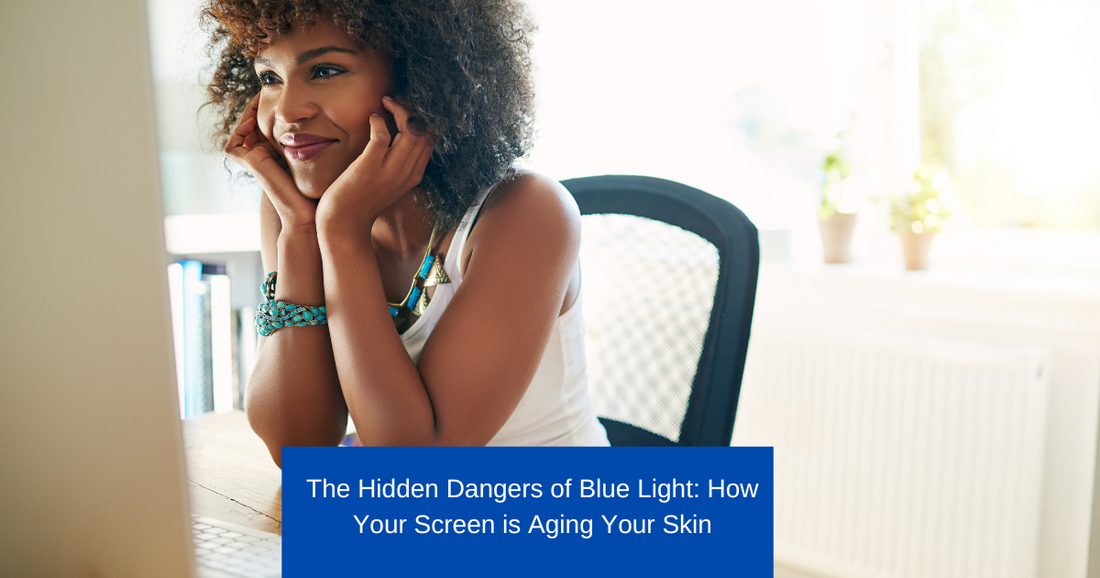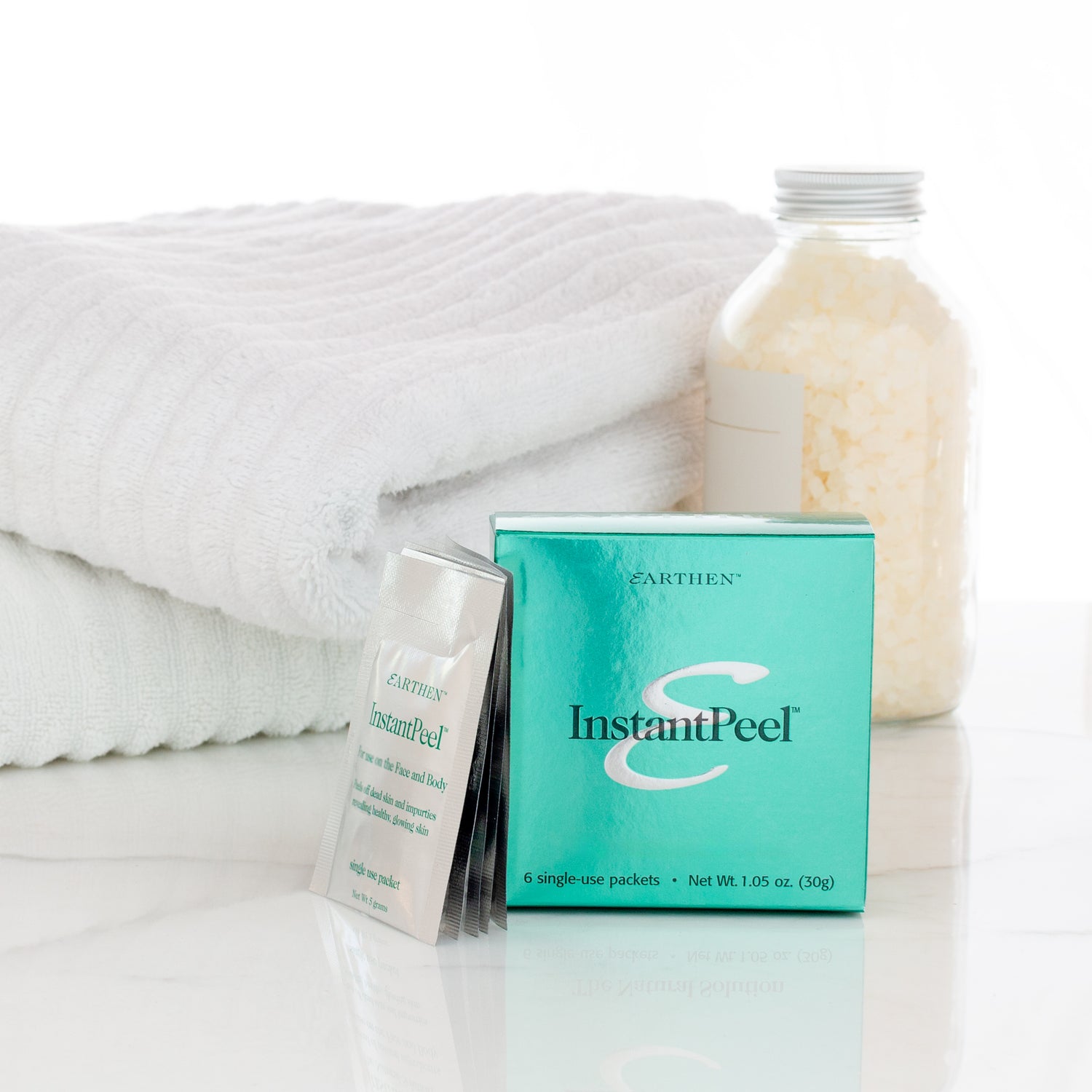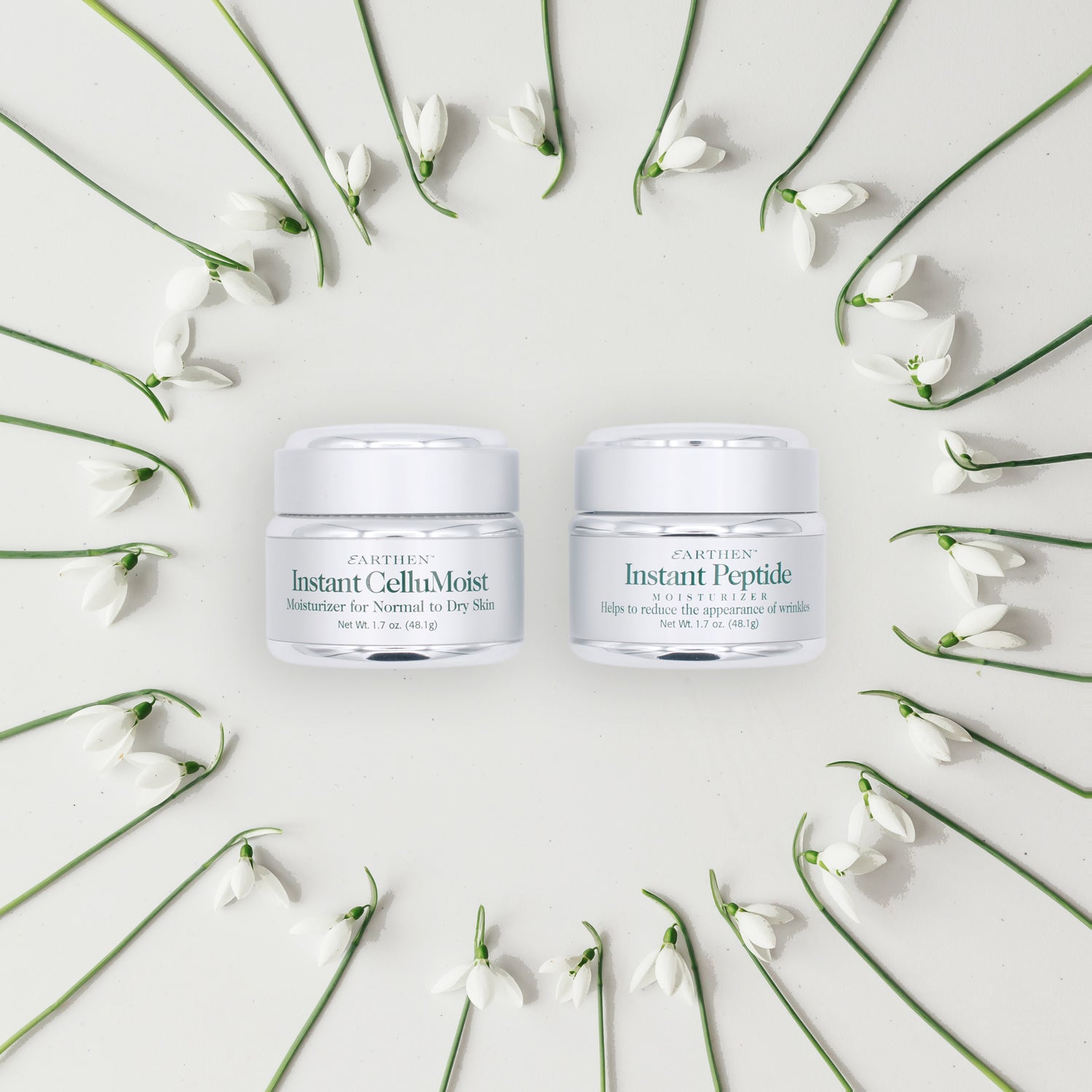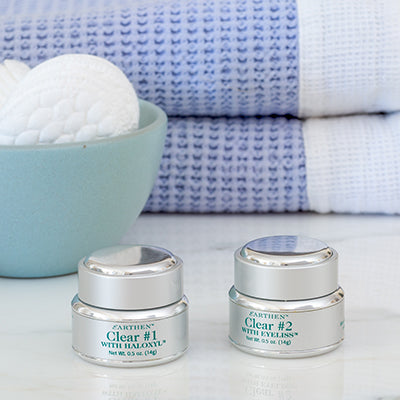We live in a digital world. From smartphones and laptops to tablets and TVs, screens are an integral part of our daily lives. While these devices offer countless benefits, they also emit blue light, a high-energy visible light that can have surprising and potentially damaging effects on our skin. Beyond the well-documented impact on sleep, emerging research suggests that blue light may be contributing to premature skin aging. So, how exactly is your screen aging your skin, and what can you do about it?
Understanding Blue Light:
Blue light is a type of high-energy visible (HEV) light found both naturally in sunlight and artificially emitted from digital screens and LED lighting. While sunlight is the primary source of blue light exposure, the prolonged and close proximity to digital devices means we're exposed to significant amounts of artificial blue light daily. This constant exposure is what's raising concerns about its long-term effects on our skin.
How Blue Light Impacts Your Skin:
While research is still ongoing, studies suggest that blue light can penetrate the skin deeper than UVA and UVB rays, although not as deeply as infrared light. This penetration can trigger a variety of responses in the skin, potentially leading to:
- Hyperpigmentation: Blue light exposure can stimulate melanocytes, the cells that produce melanin, the pigment that gives skin its color. This overproduction of melanin can lead to hyperpigmentation, such as dark spots and uneven skin tone. This is particularly concerning for individuals with darker skin tones, who are more prone to hyperpigmentation.
- Skin Barrier Disruption: Some studies suggest that blue light may weaken the skin's natural barrier function. A compromised skin barrier can lead to increased moisture loss, dryness, and sensitivity, making the skin more vulnerable to environmental aggressors.
- Inflammation: Blue light may trigger inflammatory responses in the skin, which can contribute to redness, irritation, and even exacerbate skin conditions like acne and rosacea.
Protecting Your Skin from Blue Light:
While completely eliminating blue light exposure is unrealistic in today's digital world, there are several steps you can take to minimize its potential impact on your skin:
- Limit Screen Time: The most effective way to reduce blue light exposure is to limit your time spent in front of digital screens, especially in the evenings. Try to establish screen-free periods before bedtime to improve sleep and reduce blue light's effects on your skin.
- Use Blue Light Filters: Many devices offer built-in blue light filters or night mode settings that reduce the amount of blue light emitted. Enable these settings on your smartphones, tablets, and computers, particularly in the evening. You can also find blue light-blocking glasses that can help filter out blue light from screens.
- Antioxidant Skincare: Incorporate antioxidant-rich skincare products into your routine. Antioxidants like vitamin C, vitamin E, and green tea extract can help neutralize free radicals generated by blue light and protect the skin from damage.
- Hydration is Key: Maintaining proper hydration is crucial for a healthy skin barrier. Drink plenty of water and use a moisturizer to keep your skin hydrated and resilient.
While more research is needed to fully understand the long-term effects of blue light on the skin, the existing evidence suggests it's wise to take precautions. By implementing the strategies outlined above, you can minimize your exposure to blue light and protect your skin from potential damage, helping to maintain a youthful and healthy complexion for years to come. Remember, a proactive approach to skincare is always the best defense against environmental aggressors, including the hidden dangers of blue light.




